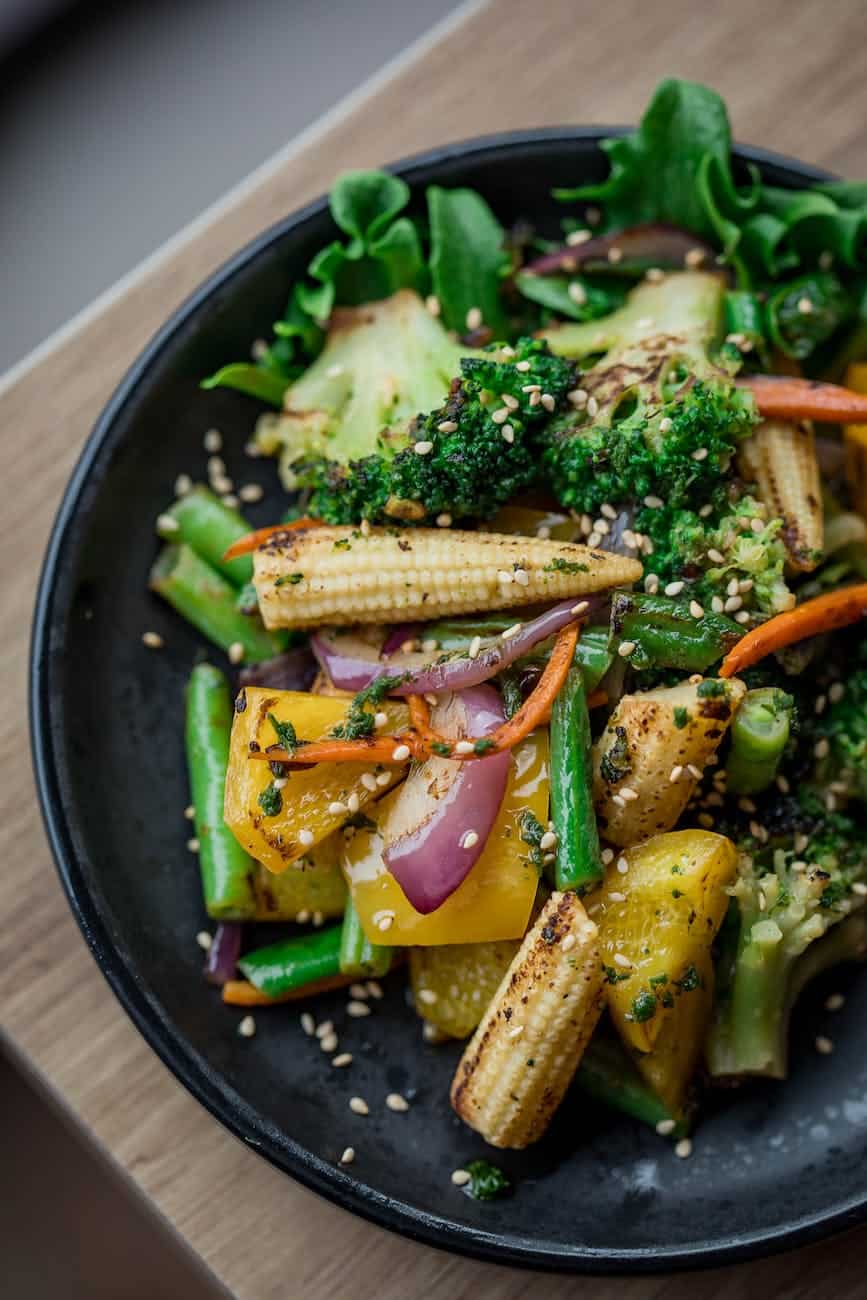
20 Feb Do Vegetables Lose Nutrients When Cooked?
Have you ever wondered whether the vibrant veggies you’re tossing into the pot are losing their nutritious sparkle as they simmer? You’re not alone in questioning if cooked vegetables hold their own against their raw counterparts. The concern about whether cooked vegetables lose nutrients when cooked is a common one, with many food lovers eager to optimize the vitamins in vegetables and other nutrients from their greens, reds, oranges, and yellows. This inquiry isn’t just casual kitchen talk; science has a lot to say about the impact of various cooking methods on our beloved sprouts and squashes, particularly when it comes to vitamin C retention.
As you stand over your stove, you might ponder whether eating raw vegetables provides a greater health punch or if the heat could be reducing your dish to a less nutrient-dense version of its fresh self. The truth is, cooking can play a culinary Jekyll and Hyde—some cooking techniques can diminish the presence of water-soluble vitamins like vitamins C and B, especially when you let them dive into a boiling bath. Yet, in a delightful twist, heat can invite the nutrients in certain veggies, such as the lycopene in tomatoes and carotenoids in carrots, to become more bioavailable for your body. Who knew your microwave, often dismissed as the less glamorous kitchen aid, could be one of the heroes of nutrient preservation, especially when used with minimal water? Let’s discover together how to harness the power of heat without waving goodbye to the nourishing elements that make your cooked vegetables a healthful powerhouse.
Impact of Cooking Techniques on Nutrient Retention
As you embark on your culinary adventures, you’re likely curious about how different cooking methods, such as boiling, steaming, and others, affect the nutrient profile of your vegetables. After all, you want to ensure that your efforts in the kitchen yield the most healthful dishes, with optimal nutrient retention and vitamin retention. Let’s delve into the ways that various cooking techniques can impact nutrient retention in your cooked vegetables:
- Boiling: When you boil vegetables, water-soluble vitamins such as vitamin C and B-complex vitamins can take a hit. Boiling can lead to a significant loss of these nutrients, as they tend to leach into the cooking water. To mitigate this, consider using the leftover liquid for soups or sauces to reclaim some of the nutrients.
- Steaming: If you’re aiming to keep the nutrient content intact, steaming is your go-to method. By cooking with steam, you minimize the loss of nutrients in the water, making it a superior choice for preserving the goodness in your greens.
- Stir-Frying and Roasting: Both stir-frying and roasting can be nutrient-friendly options when done correctly. Stir-frying retains nutrients well, provided you avoid overcooking. Similarly, roasting can maintain a high level of nutrients, but be wary of extended cooking times, which can deplete water-soluble vitamins.
When considering the nutrient content of raw vs cooked vegetables, it’s essential to note the variability among different veggies. For instance, vitamin C content is lowest in carrots and highest in broccoli, but nearly all of it is destroyed by boiling. On the flip side, cooking can boost the content of α-tocopherol and β-carotene, depending on the type of vegetable. Interestingly, microwaving has the least impact on vitamin C content, making it a favorable choice for nutrient preservation.
To keep your cooked vegetables as nutrient-dense as possible, here are a few tips to keep in mind:
- Minimal Water Usage: Use as little water as possible when cooking to reduce the loss of water-soluble vitamins.
- Consume Cooking Liquids: Don’t discard the water used for boiling or steaming; instead, incorporate it into other dishes to benefit from the dissolved nutrients.
- Avoid Baking Soda: While it might make your greens look brighter, using baking soda when cooking vegetables can hasten nutrient loss.
- Mindful Microwaving: Given that microwaving requires shorter cooking times and less water, it’s a great way to retain the natural goodness of your veggies.
Remember, overheating food, regardless of the method, can diminish nutrients. It’s crucial to cook your vegetables just enough to make them palatable and safe to eat while maintaining their nutrient content. So next time you’re in the kitchen, pondering whether do vegetables lose nutrients when cooked, know that the method you choose plays a pivotal role in the healthfulness of your plate.
Conclusion
This exploration into the nutrient retention of vegetables has revealed the double-edged sword of cooking—while methods such as boiling may reduce water-soluble vitamins and minerals, others like steaming and microwaving can preserve or even enhance nutrient availability, including fat-soluble vitamins. The key takeaway is that different vegetables interact with heat in varied ways, and the cooking method selected can significantly influence the final nutrient profile. Mindful cooking practices, such as minimal water use and careful attention to cooking times, can help maintain the healthful attributes of your vegetable medley, ensuring that boiling vegetables remove nutrients or does steaming vegetables remove nutrients becomes a less significant concern.
In light of these findings, we are reminded of the delicate balance between flavor, texture, and nutritional value that our cooking techniques can engender. As we strive for the most nourishing meals, let us wield the heat with precision and care, ensuring that our plates are not only tempting to the palate but also rich in the vital nutrients our bodies need. Ultimately, the art of cooking vegetables is less about strict adherence to raw versus cooked and more about an informed approach to the methods that best suit our healthful intentions.


No Comments